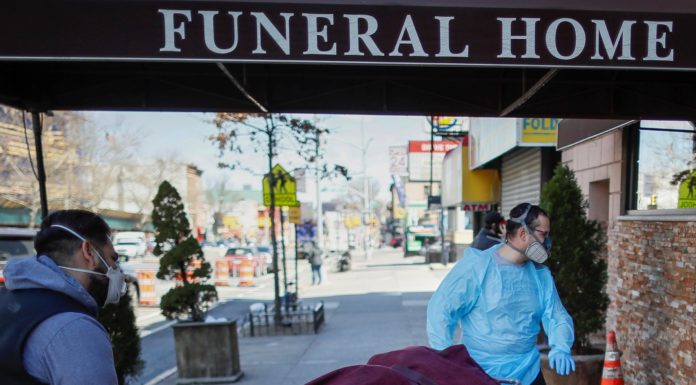(Kaiser Health News) Private equity firms are investing in health care from cradle to grave, and in that latter category quite literally. A small but growing percentage of the funeral home industry — and the broader death care market — is being gobbled up by private equity-backed firms attracted by high profit margins, predictable income, and the eventual deaths of tens of millions of baby boomers.
The funeral home industry is in many ways a prime target for private equity, which looks for markets that are highly fragmented and could benefit from consolidation. By cobbling together chains of funeral homes, these firms can leverage economies of scale in purchasing, improve marketing strategies, and share administrative functions.
According to industry officials, about 19,000 funeral homes make up the $23 billion industry in the U.S., at least 80% of which remain privately owned and operated — mostly mom and pop businesses, with a few regional chains thrown in. The remaining 20%, or about 3,800 homes, are owned by funeral home chains, and private equity-backed firms own about 1,000 of those.
Consumer advocates worry that private equity firms will follow the lead of publicly traded companies that have built large chains of funeral homes and raised prices for consumers. “The real master that’s being served is not the grieving family who’s paying the bill — it’s the shareholder,” said Joshua Slocum, executive director of the Funeral Consumers Alliance, a nonprofit that seeks to educate consumers about funeral costs and services.
Although funeral price data is not readily available to the public, surveys by the local affiliates of the alliance have found that when publicly traded or private equity-backed chains acquire individual funeral homes, price hikes tend to follow.
In Tucson, Arizona, for example, when a local owner sold Angel Valley Funeral Home in 2019 to private equity-backed Foundation Partners Group, prices increased from $425 to $760 for a cremation, from $1,840 to $2,485 for a burial with no viewing or visitation, and from $3,405 to $4,480 for a full, economical funeral.
In the Arizona city of Mesa, the sale of Lakeshore Mortuary to the publicly traded funeral home chain Service Corporation International led to price increases for a cremation from $1,565 in 2018 to $1,770 in 2021, for a burial from $2,795 to $3,680, and for an economical funeral from $4,385 to $5,090.
“We believe our pricing is competitive and reasonable in the markets in which we operate,” a Service Corporation International official said in an email.
Details of those price increases were provided by Martha Lundgren, a member of the Funeral Consumers Alliance of Arizona’s board. She said funeral home acquisitions have led to the cancellation of pricing agreements negotiated on behalf of consumers who are members of the alliance. In 2020, a cremation at Adair Dodge Chapel in Tucson cost members $395, nearly two-thirds off the $1,100 standard price. But after Foundation Partners Group acquired the funeral home, the member pricing agreement was canceled, and the price of a direct cremation rose to $1,370.
Foundation Partners Group officials said the price increases partly reflect the higher price of supplies, such as caskets, as well as increasing labor costs. But most of the increases, they said, represent a move to a more transparent pricing system that includes administrative and transportation fees that other funeral homes add on later.
“We don’t take advantage of people in there when they’re not thinking clearly,” said Kent Robertson, the company’s president and CEO. “That’s just not who we are.”
…
Foundation Partners owns Tulip Cremation, an online service that allows people to order a cremation with just a few clicks — and without having to set foot in a funeral home. Tulip currently operates in nine states where Foundation Partners has funeral homes. The company expects the service to eventually operate nationally.
Haneman said innovative approaches like Tulip’s are sorely needed in the funeral home industry, which has barely changed in 100 years. “It’s absurd to me that the average cost of a funeral is running $7,000 to $10,000,” she said. “People need less expensive options, and innovation is going to get us there.” Tulip charges less than $1,000 for a cremation; ashes are mailed back to the families.



